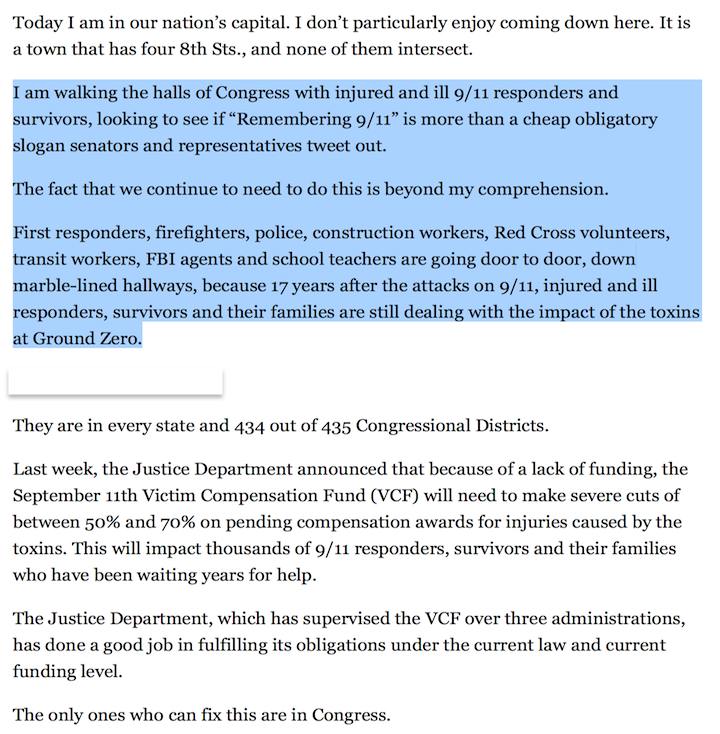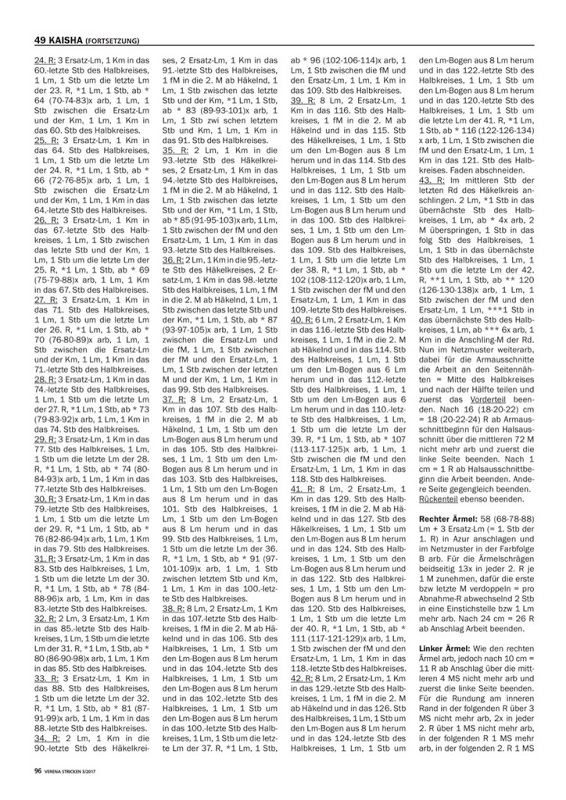CASUALTY LIST
117th Congress
(As of 09/30/2022)
Retiring or seeking other office
| Democrats | Republicans | |||
| 1. | Kirkpatrick (D), AZ | | Hice (R), GA (GA Secretary of State) |
|
| 2. | Bustos (D), IL | | Brooks (R), AL (Senate) |
|
| 3. | Ryan (D), OH (Senate) | | Zeldin (R), NY (Governor) |
|
| 4. | Crist (D), FL (Governor) | | Brady (R), TX |
|
| 5. | Demings (D), FL (Senate) | | Budd (R), NC (Senate) |
|
| 6. | Kind (D), WI | | Hartzler (R), MO (Senate) |
|
| 7. | Lamb (D), PA (Senate) | | Long (R), MO (Senate) |
|
| 8. | Bass (D), CA (Mayor) | | Gonzalez (R), OH |
|
| 9. | Yarmuth (D), KY | | Kinzinger (R), IL |
|
| 10. | Price (D), NC | | Gohmert (R), TX (TX Att. |
|
| 11. | Doyle (D), PA | | Hollingsworth (R), IN |
|
| 12. | Brown (D), MD (MD Att. Gen.) | | Katko (R), NY |
|
| 13. | Speier (D), CA | | Keller (R), PA |
|
| 14. | Butterfield (D), NC | | Taylor (R), TX |
|
| 15. | Welch (D), VT (Senate) | | Upton (R), MI |
|
| 16. | Johnson, E. B. (D), TX | | Gibbs (R), OH |
|
| 17. | Suozzi (D), NY (Governor) | | McKinley (R), WV (Lost Primary) |
|
| 18. | DeFazio (D), OR | | Cawthorn (R), NC (Lost Primary) |
|
| 19. | Lowenthal (D), CA | | Jacobs, Chris (R), NY |
|
| 20. | Murphy, S. (D), FL | | Rice (R), SC (Lost Primary) |
|
| 21. | Roybal-Allard (D), CA | | Conway, Connie (R), CA |
|
| 22. | Sires (D), NJ | | Palazzo (R), MS (Lost Primary) |
|
| 23. | Rush (D), IL | | Davis (R), IL (Lost Primary) |
|
| 24. | Lawrence (D), MI | | Mullin (R), OK (Senate) |
|
| 25. | Perlmutter (D), CO | | Meijer (R), MI (Lost Primary) |
|
| 26. | Langevin (D), RI | | Herrera Beutler (R), WA (Lost Primary) |
|
| 27. | McNerney (D), CA | | Cheney (R), WY (Lost Primary) |
|
| 28. | Cooper (D), TN | | Sempolinski (R), NY |
|
| 29. | Rice (D), NY | |
|
|
| 30. | Deutch (D), FL | |
|
|
| 31. | Kahele (D), HI (Governor) | |
|
|
| 32. | Bourdeaux (D), GA (Lost Primary) | |
|
|
| 33. | Schrader (D), OR (Lost Primary) | |
|
|
| 34. | Newman (D), IL (Lost Primary) | |
|
|
| 35. | San Nicholas (D), GU (Governor) | |
|
|
| 36. | Levin (D), MI (Lost Primary) | |
|
|
| 37. | Maloney, Carolyn (D), NY (Lost Primary) | |
|
|
| 38. | Jones (D), NY (Lost Primary) | |
|
|
Resigned/Died*
| Departed Member | Special Election | Successor |
| Letlow, Luke (R), LA* | March 20, 2021 | Letlow, Julia (R), LA |
| Richmond (D), LA* (Administration) | April 24, 2021, runoff | Carter, Troy (D), LA |
| Wright (R), TX* | May 1, 2021, special election July 27, 2021, special election runoff | Ellzey (R), TX |
| Fudge (D), OH* (Administration) | Aug. Nov. 2, 2021, special election | Brown, Shontel (D), OH |
| Haaland (D), NM* (Administration) | June 1, 2021, special election | Stansbury (D), NM |
| Hastings (D), FL* | Nov. 2, 2021, primary Jan. 11, 2022, special election | Cherfilus-McCormick (D), FL |
| Stivers (R), OH* | Aug. 3, 2021 primary Nov. 2, 2021, general election | Carey (R), OH |
| Nunes (R), CA* | June 7, 2022 | Conway, Connie (R), CA |
| Hagedorn (R), MN* | August 9, 2022 | Finstad (R), MN |
| Young (R), AK* | August 16, 2022 special general election | Peltola (R), AK |
| Fortenberry (R), NE* | June 28, 2022, special election | Flood (R), NE |
| Vela (D), TX* | June 14, 2022 | Flores (R), TX |
| Reed (R), NY* | August 23, 2022 | Sempolinski (R), NY |
| Delgado (D), NY* (NY Lieutenant Governor) | August 23, 2022 | Ryan, Pat (D), NY |
| Walorski (R), IN* | November 8, 2022 | TBD |
| Deutch (D), FL* |
|
|
*Letlow, Luke (R), LA died Dec. 29, 2020, before taking the oath of office.
29, 2020, before taking the oath of office.
*Richmond (D), LA resigned Jan. 15, 2021.
*Wright (R), TX died Feb. 7, 2021.
*Fudge (D), OH resigned effective March 11, 2021.
*Haaland (D), NM resigned effective March 16, 2021.
*Hastings (D), FL died 04/06/2021.
*Stivers (R), OH resigned effective May 16, 2021.
*Nunes (R), CA resigned effective January 3, 2022.
*Hagedorn (R), MN died Feb. 17, 2022.
*Young (R), AK died March 18, 2022.
*Fortenberry (R), NE resigned effective March 31, 2022.
*Vela (D), TX resigned effective March 31, 2022
*Reed (R), NY resigned effective May 10, 2022
*Delgado (D), NY resigned effective May 25, 2022
*Walorski (R), IN died Aug. 3, 2022.
*Deutch (D), FL resigned effective Sept. 30, 2022.
Senate Retirees/Resignations/Death
| Democrats | Republicans | ||
| | Leahy (D), VT | | Toomey (R), PA |
| |
| | Portman (R), OH |
| |
| | Blunt (R), MO |
| |
| | Burr (R), NC |
| |
| | Shelby (R), AL |
| |
| | Inhofe (R), OK |
A large number of House departures in the 2018 cycle helped the Democrats take control of the House. 2022 departures, so far: House: 17 Republicans, 29 Democrats; Senate: 5 Republicans, 1 Democrat.
2022 departures, so far: House: 17 Republicans, 29 Democrats; Senate: 5 Republicans, 1 Democrat.
Totals below show members who retired or ran for other offices at the end of each cycle. It does not include members who left office before the end of their terms (listed here for the current Congress) as these members are usually replaced before the general election.
The 1994, 2006 and 2010 elections were particularly noteworthy as those elections saw a change in which party controlled the House. 2018 will see a historically high number of retirements and the highest number of Republican retirements from the House in at least 30 years.
| Chamber | Description | Democrats | Republicans |
|---|---|---|---|
| House | Retiring | 22 | 11 |
| House | Running for other office | 7 | 6 |
| Senate | Retiring | 1 | 5 |
| Chamber | Description | Democrats | Republicans |
|---|---|---|---|
| House | Ran for other office | 3 | 4 |
| House | Retired | 6 | 22 |
| Senate | Retired | 1 | 3 |
| Chamber | Description | Democrats | Republicans |
|---|---|---|---|
| House | Ran for other office | 8 | 10 |
| House | Retired | 10 | 23 |
| Senate | Retired | 0 | 4 |
| Chamber | Description | Democrats | Republicans |
|---|---|---|---|
| House | Ran for other office | 8 | 5 |
| House | Retired | 7 | 18 |
| Senate | Retired | 3 | 2 |
| Chamber | Description | Democrats | Republicans |
|---|---|---|---|
| House | Ran for other office | 3 | 10 |
| House | Retired | 11 | 15 |
| Senate | Retired | 5 | 3 |
| Chamber | Description | Democrats | Republicans |
|---|---|---|---|
| House | Ran for other office | 5 | 6 |
| House | Retired | 14 | 10 |
| Senate | Retired | 6 | 3 |
| Chamber | Description | Democrats | Republicans |
|---|---|---|---|
| House | Ran for other office | 5 | 6 |
| House | Retired | 11 | 8 |
| Senate | Retired | 5 | 6 |
| Chamber | Description | Democrats | Republicans |
|---|---|---|---|
| House | Ran for other office | 3 | 2 |
| House | Retired | 3 | 21 |
| Senate | Retired | 0 | 5 |
| Chamber | Description | Democrats | Republicans |
|---|---|---|---|
| House | Ran for other office | 4 | 3 |
| House | Retired | 3 | 8 |
| Senate | Retired | 2 | 1 |
| Chamber | Description | Democrats | Republicans |
|---|---|---|---|
| House | Ran for other office | 5 | 7 |
| House | Retired | 6 | 12 |
| Senate | Retired | 5 | 3 |
| Chamber | Description | Democrats | Republicans |
|---|---|---|---|
| House | Ran for other office | 6 | 9 |
| House | Retired | 7 | 12 |
| Senate | Retired | 1 | 5 |
| Chamber | Description | Democrats | Republicans |
|---|---|---|---|
| House | Ran for other office | 4 | 5 |
| House | Retired | 3 | 16 |
| Senate | Retired | 4 | 1 |
| Chamber | Description | Democrats | Republicans |
|---|---|---|---|
| House | Ran for other office | 4 | 6 |
| House | Retired | 12 | 9 |
| Senate | Ran for other office | 0 | 1 |
| Senate | Retired | 3 | 1 |
| Chamber | Description | Democrats | Republicans |
|---|---|---|---|
| House | Ran for other office | 7 | 8 |
| House | Retired | 22 | 13 |
| Senate | Retired | 8 | 5 |
| Chamber | Description | Democrats | Republicans |
|---|---|---|---|
| House | Ran for other office | 9 | 13 |
| House | Retired | 20 | 6 |
| Senate | Retired | 5 | 3 |
| Chamber | Description | Democrats | Republicans |
|---|---|---|---|
| House | Ran for other office | 9 | 3 |
| House | Retired | 31 | 20 |
| Senate | Ran for other office | 1 | 1 |
| Senate | Retired | 3 | 3 |
| Chamber | Description | Democrats | Republicans |
|---|---|---|---|
| House | Ran for other office | 2 | 8 |
| House | Retired | 5 | 6 |
| Senate | Retired | 0 | 2 |
Feel free to distribute or cite this material, but please credit OpenSecrets. For permission to reprint for commercial uses, such as textbooks, contact OpenSecrets: info[at]crp.org
For permission to reprint for commercial uses, such as textbooks, contact OpenSecrets: info[at]crp.org
Presidential impeachment proceedings have been initiated four times in the history of the United States. Three attempts were unsuccessful, another ended in the voluntary resignation of the head of the White House before the start of Senate hearings. On January 11, the US House of Representatives published the text of a resolution impeaching Trump, which, if passed, could become the fifth in the history of the country.0016
On January 11, the US House of Representatives published the text of a resolution impeaching Trump, which, if passed, could become the fifth in the history of the country.0016
Donald Trump is accused of sedition (referring to the President's speech in Washington before the attack on the Capitol). Then the vote of the members of the House of Representatives should take place, and if at least one of the articles mentioned in the resolution gains a majority of the votes, the president will be considered accused. If that happens, Trump could become the first U.S. president to be impeached twice. Further materials will be sent to the Senate. It takes 2/3 of senators who are in favor to remove Trump. The Senate is now dominated by Republicans, making impeachment unlikely.
Presidential impeachment proceedings have been initiated four times in US history. None of the attempts were successful, although in one case the real threat of impeachment still forced the president to voluntarily resign. Forbes remembered which of the presidents they tried to point to the door.
Forbes remembered which of the presidents they tried to point to the door.
The first impeachment proceedings in the history of the United States were initiated in 1868 against the 17th President of the United States, Andrew Johnson. Democrat Johnson led the country in the spring of 1865 after the assassination of Abraham Lincoln and began to pursue a policy that was fundamentally contrary to the principles of his predecessor. Johnson had a protracted conflict with Congress, including the fact that the president fired Secretary of War Edwin Stanton several times, but the Senate reinstated him each time. After another such attempt against Johnson, impeachment proceedings were launched. Impeachment for Andrew Johnson did not take place in the end: the president retained his post thanks to a one-vote majority in the Senate.
Getty Images In 1974 impeachment threatened the 37th President of the United States, Richard Nixon, whose entire second term in office was spent against the backdrop of the Watergate scandal. Nixon's team was accused of eavesdropping on the headquarters of a Democratic rival in the election. After the president's transcripts were released, full support for impeachment in both houses of Congress was a settled matter. Convinced that impeachment could not be avoided, Nixon resigned and became the first American president to be removed from power in this way. A guilty verdict against him was never issued, and the new head of state, Gerald Ford, after his election, announced an amnesty for Nixon.
Nixon's team was accused of eavesdropping on the headquarters of a Democratic rival in the election. After the president's transcripts were released, full support for impeachment in both houses of Congress was a settled matter. Convinced that impeachment could not be avoided, Nixon resigned and became the first American president to be removed from power in this way. A guilty verdict against him was never issued, and the new head of state, Gerald Ford, after his election, announced an amnesty for Nixon.
In 1998, the 42nd President of the United States Bill Clinton was at the center of a political scandal because of his relationship with the White House intern Monica Lewinsky. The reason for starting the impeachment proceedings was not the president's intimate relationship with a young intern, but the fact that the president lied about this relationship under oath. The House of Representatives passed a decision on impeachment, but failed to gain the two-thirds of the votes necessary to convict Clinton. After nine years of litigation, Clinton was cleared of all charges.
The House of Representatives passed a decision on impeachment, but failed to gain the two-thirds of the votes necessary to convict Clinton. After nine years of litigation, Clinton was cleared of all charges.
In September 2019, Congress officially launched the impeachment proceedings against the 45th President of the United States, Donald Trump. The reason for this was the statement by an anonymous informant about Trump's pressure on Ukrainian President Volodymyr Zelensky. We are talking about a telephone conversation during which the head of the White House allegedly asked his Ukrainian counterpart to investigate the activities of former US Vice President Joe Biden and his son Hunter. Thus, according to Trump's critics, he was trying to spoil the rating of his rival in the upcoming elections. Trump was impeached on two counts - abuse of power and obstruction of the work of the Senate, and by the votes of the Democrats alone. 51 were against, 49 were in favorsenators.
51 were against, 49 were in favorsenators.
Donald Trump could become the first U.S. president to be impeached twice: CNN this week published the text of a resolution that it says will be submitted to the House of Representatives. The document accuses Trump of sedition. On January 6, his supporters stormed the Congressional building in an attempt to disrupt the claim of Democrat Joe Biden's victory in the presidential election. As a result of the riots, five people died, more than 50 were detained, and congressmen began to discuss the possibility of early removal of Trump from presidential duties, including through impeachment or the application of the 25th amendment to the Constitution (the amendment speaks of the transfer of power to the vice president, in the event if the head of state is unable to perform his duties due to illness or death).
Tatyana Polyakova
Editorial Forbes
#impeachment #Donald Trump #Richard Nixon #Bill Clinton #USA
Forbes Newsletter
Finance, Investing, Business & Technology Essentials
Sign up for our ”Context” newsletter: it will help you understand the events.
If Democrats regain control of the Senate, they could seriously limit Trump's power in the last two years of his presidency
US President Donald Trump will not be on the November 6 ballot. However, the results of the midterm elections will have a huge impact on the rest of his presidential term.
Americans will elect 35 senators, 36 state governors and 435 members of the House of Representatives, as well as dozens of other legislators.
The results of the vote are important, because if the Democrats regain control of the Senate, they could seriously limit the power of Donald Trump in the last two years of his presidency.
Analysts suggest that dozens of seats in the House of Representatives, which are currently occupied by the Republicans, may go to their political opponents. Here, all 435 seats are contested in the November elections.
However, in the struggle for the Senate, the Republicans have a good position: there, only nine seats occupied by them can change owners.
Democrats will have to defend 24 seats in the Senate and two seats of independent candidates who support them.
The midterm elections can be considered a presidential confidence referendum, which is usually bad news for the party that controls the White House.
There have been 21 midterm elections since 1934, and in all those years the President's party has only won three times in the House of Representatives and five times in the Senate.
The president's approval rating is a good indicator of how his party will perform. Donald Trump's approval rating has recently reached its low of around 40%.
By comparison, Barack Obama's approval rating was 45% before the 2010 midterm elections, in which the Democrats suffered one of the most crushing defeats in US history.
 A story in five acts
A story in five acts Election polls don't give Republicans much hope either. They now show the Democrats leading their rivals by 10 percentage points, the party's best performance since the beginning of the year.
The average age of members of Congress is 60, so frequent resignations among congressmen are not surprising. However, the number of Republicans who are retiring instead of running for office surprised many this time.
More than 30 Republicans have announced their resignations, and many have already left their posts. Some - against the backdrop of sex scandals, and someone decided to go to other elected positions.
Many cite Trump himself as one of the reasons for his resignation. One of them told CNN: "I feel like I'm only doing what I'm doing answering questions about Donald Trump, and not about health care or tax policy."
This is good news for Democrats, as polls show incumbent candidates are more likely to win than their competitors, in part because of their visibility and fundraising opportunities.
Democrats are actively expanding their ranks largely thanks to Donald Trump. This year, they submitted the largest number of candidates to the House of Representatives since 2008.
About 1,500 people ran for the Democrats in the House primary, 500 more than in the last midterms. And among them, a record number of women - 350.
The surge in the number of women candidates has prompted some analysts to call 2018 another "Year of the Woman" - similar to the 1992 election, when the number of women in Congress doubled.
Today, women make up 20% of Congress, and such a modest representation has long been explained by the reluctance of women to go to the polls.
However, Hillary Clinton's surprise loss to the alleged sexual harasser and known for his sexist remarks, Donald Trump, was an important motivator for American women.
Midterm elections are not as popular as presidential elections and turnout is usually low. If about 60% of Americans vote for the president, then only 40% of voters come to the midterm elections.
Turnout in 2014 was 35.9%, the lowest since World War II.
Low turnout has played into the hands of the Republican Party in past elections, as older whites who support the Republicans more often than others come to the polls.
But Democrats are hoping that this time around, Trump's unpopularity among youth, women and minorities will force them to pay more attention to the midterms.
In March, one million people voted in the Texas Democratic primary. That's almost double what it was four years ago, but much less than the 1.5 million participants in the Republican primary.
This means that the Democrats should not hope to win in Texas, but a similar turnout in other states may help them win.
Trump's biggest legislative victory so far has been the sensational reform of the US tax system. However, he managed to sign this document only because the Republicans had a majority in both houses of Congress.
If Democrats take control of one or both houses in November, they will be able to limit President Trump's options in the last two years of his term.
Democrats can take control of important congressional committees, allowing them to launch a series of investigations, including the president's business dealings and allegations of sexual harassment against him.
Trump's impeachment calls may get louder if Democrats win the House, but it won't make sense unless they are backed by Republican senators. After all, 2/3 votes of all senators are needed for impeachment.